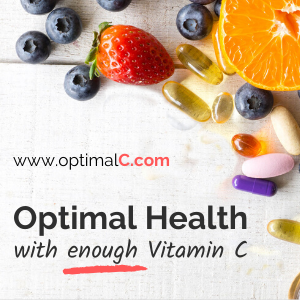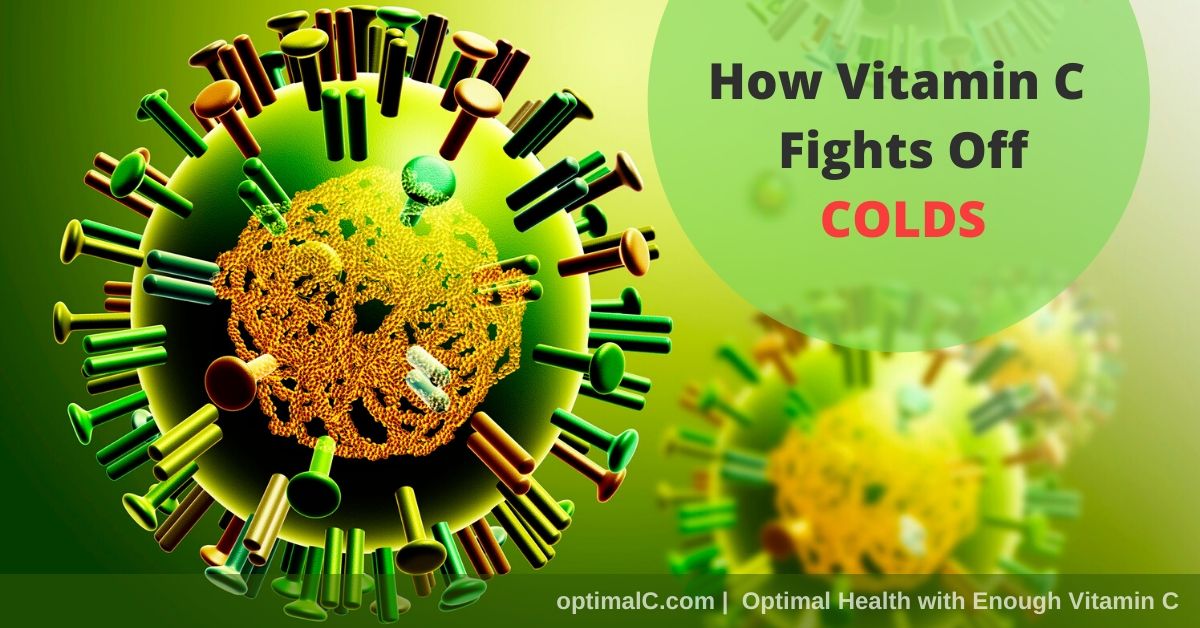Page Contents
Kidney Stones and Vitamin C: The Research and My Experience
By Arturo Galindo, Cert. Nutritional Therapist
Kidney Stones and Vitamin C studies find that vitamin C does not increase the risk of developing stones. In fact, the vitamin C experts believe that vitamin C may reduce your risk of kidney stones.
But why is this still a concern for some people? What are the safety studies of kidney stones and vitamin C?
My family and I have taken large amounts of vitamin C for over 10 year now. In this article I try to answer all these questions to help you decide if there is a real risk or not.
 The vitamin C experts think there is no risk and that vitamin C actually may help reduce the risk of developing kidney stones.
The vitamin C experts think there is no risk and that vitamin C actually may help reduce the risk of developing kidney stones.We've prepared this short video for you. You'll learn what our site is about and how you can use this information to improve your health...
Subscribe and Get Our Free eBook!
 |
Important: Ascorbic acid or vitamin C is more than a vitamin. |
What are Kidney Stones?
Kidney stones are small, hard masses of minerals that accumulate in your kidneys when:
- Your urine contains too much of these minerals
- These minerals may stick together and form kidney stones
- You lack certain substances that prevent these minerals from sticking together
The minerals that can stick together and form kidney stones are calcium, oxalates and uric acid.
According to the Mayo Clinic, there is no definite, single cause. But there are certain factors that can increase your risk:
- Family or personal history
- Dehydration
- Certain diets that are high in protein, salt, and sugar
- Being obese
- Digestive diseases and surgery
- Other medical conditions
Note: Kidney stones and vitamin C are not listed in the risk factors mentioned by the Mayo Clinic.
Kidney Stones and Vitamin C Studies
There is not one case reported in the medical literature of vitamin C causing kidney stones.
The general consensus is that vitamin C is safe even at large amounts.
Here are several studies on kidney stones and vitamin C:
- In this large scale study, 85,5557 women were followed by 14 years. It found no evidence that vitamin C causes kidney stones.
- In this other study, 45,251 men were followed. It actually found that doses of vitamin C larger than 1.5 grams reduced the risk of kidney stones
- In this study, vitamin C has been proposed and used as a treatment for kidney stones.
Why People Think Vitamin C Increases The Risk of Kidney Stones
The idea that vitamin C increases the risk of developing kidney stones came years ago as part of the medical attack on Linus Pauling.
Let me explain.
Linus Pauling is the only person awarded two unshared Nobel Prizes and one of the greatest scientists of the 20th century.
Dr. Pauling was not a medical doctor, but he had a great interest in nutrition science. He dedicated many years to research ascorbic acid and other nutrients.
Efforts to discredit him took place when he suggested that vitamin C may help fight chronic diseases like cancer and heart disease. Many scientists and doctors before him had suggested the same.
The story of kidney stones and vitamin C is part of this effort to discredit Dr. Pauling.
The idea is based on anecdotal evidence and not science, and the reasoning is as follows:
- Oxalates are a natural substance in many foods
- When some types of kidney stones form, the number of oxalates increase
- Some studies show that more vitamin C can increase the number of oxalates. This happens in people with recurrent stones formation that have unusual biochemistry
- This results in the idea that vitamin C increases the risk of kidney stones
The fact is that many factors influence why and how stones form.
There is no scientific evidence that shows that an increase in oxalates results in more or larger kidney stones.
Dr. Stevey Hickey is one of the vitamin C experts. He's the author of the book Ascorbate, The Science of Vitamin C.
In his book, Dr. Hickey mentions that the reports found in the literature rely on vague indicators of improbable risk.
How Vitamin C May Actually Reduce Your Risk of Kidney Stones
The vitamin C experts believe that vitamin C may actually reduce the risk of kidney stones... and could help prevent other types of stones:
- Uric acid stones - formed in the gout
- Cystine stones - formed in children with hereditary conditions
- Calcium phosphate stones
- Struvite stones (magnesium ammonium phosphate) - formed in infected urine
Here are the reasons why vitamin C may actually reduce the risk of stones formation:
Vitamin C tends to stick to calcium
Calcium oxalate is the main component of kidney stones.
This means enough vitamin C reduces the amount of calcium in the blood. This may reduce your risk of creating calcium oxalate which leads to kidney stones.
Vitamin C is a diuretic
This means that vitamin C helps your body increase urine flow. This is an environment where kidney stones are less likely to form.
Vitamin C kills bacteria
Stones appear to form around an infected area. Enough vitamin C kills bacteria and might prevent stones.
Why? Because vitamin C removes the bacteria around which the stones form.
Dr. Frederick Klenner used large amounts of vitamin C in his medical practice for over 40 years. He explains that when proper amounts are used, ascorbic acid destroys all virus organisms.
Vitamin C Reduces Sugar Levels
Glucose (sugar) and vitamin C have very similar molecular structures. They both compete in the body for the biochemical pumps that transport them into the cells.
This means that enough vitamin C reduces your sugar levels... and this may reduce your risk or developing kidney stones.
It's interesting that our bodies were designed to convert glucose to ascorbic acid. The problem is that this process depends on having an enzyme that most people are missing.
This is one of the reasons why ascorbic acid is more than a vitamin.
My Experience After 10 Years
I started taking larger amounts of vitamin C over 10 years ago. Here's my story with vitamin C.
During this time, I have not developed any kidney stones or any other type of stones.
I also have not developed any medical condition as a result of taking the amounts of vitamin C that my body needs. I currently take about 12 grams of vitamin C daily, spaced out throughout the day.
Vitamin C has helped me take fewer drugs, and be in better health.
As a result, I rarely get sick. And when I do feel a little under the weather, I up my intake of vitamin C and go back to normal much faster.
Should You Worry About Kidney Stones and Vitamin C?
This is a question that only you can answer after you study this information.
There's always a risk when you do something new, small or large. Do you know there are people that have died from drinking too much water. Yes, people can intoxicate with water.
My hope is that this information helps you decide whether the risk of kidney stones and vitamin C is real.... or is so small that there is no reason to worry.
Sources
- Hickey S., Roberts H. (2004) Ascorbate, The Science of Vitamin C
- PubMed - Intake of vitamins B6 and C and the risk of kidney stones in women.
- PubMed - A prospective study of the intake of vitamins C and B6, and the risk of kidney stones in men.
- Semantic Scholar - Lithogenesys and Hypovitaminosis
- Mayo Clinic - Kidney Stones
 |
By Arturo Galindo I have used vitamin C and nutrition for over 10 years to end my chronic diseases and help my family stay healthy. Learn about our story. |
Subscribe and Get Our Free eBook!
Follow us on Social Media!
How do you feel about what you just read?








Facebook Comments
Have your say about what you just read! Leave a comment in the box below.